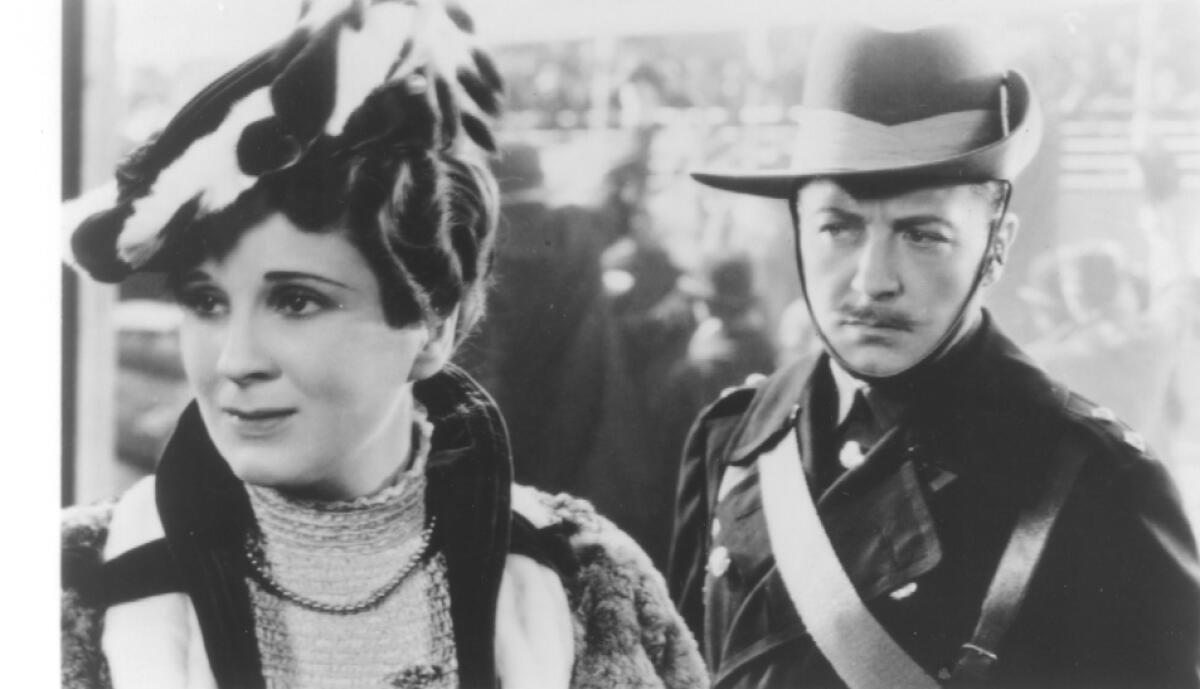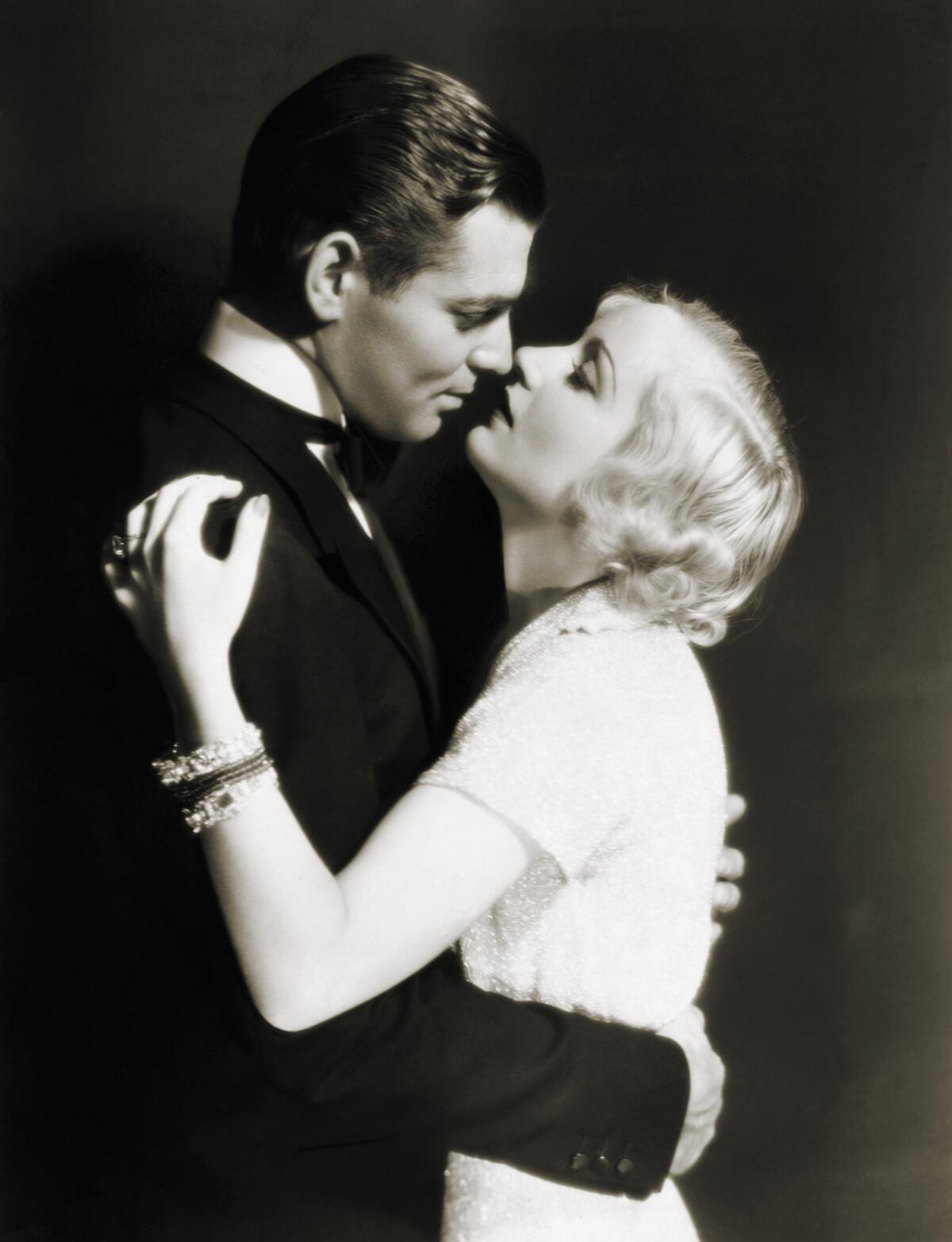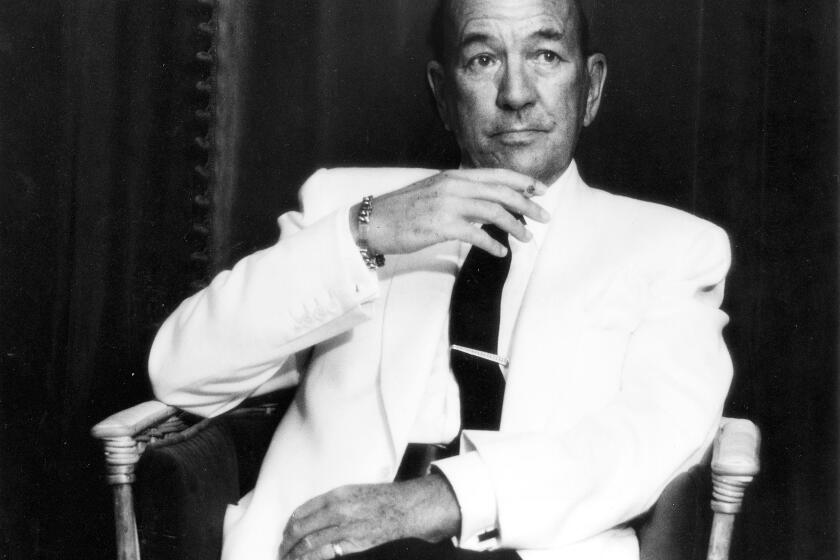From the Archives: Praises heaped on ‘Cavalcade’!

- Share via
NEW YORK — “Cavalcade,” first seen Thursday night at the Gaiety Theater, is the greatest picture Fox has ever made, and many believe it to be the finest achievement of the talking film. It is magnificent and is virtually without a flaw.
At the outset, it may be as well to touch upon the slight and fleeting moment that mars the tastefulness of the whole, although this criticism bears a relationship so slight to the perfection of the effort that it will pass unnoticed by many. To some spectators, however, it came as a shock to find the high idealistic tone of the work marred by two lapses into the sordid and morbid in the sequence depicting postwar licentiousness.
Flashes involving two women and a male couple seem necessarily embarrassing, especially when it is realized that the idea could have been projected quite as forcibly without touching upon degradation.
PRAISE HEAPED UPON IT
On all sides, there is nothing but unqualified praise for the picture, praise which mounts into a pitch of hysteria. Superlatives are lavished unashamed by the most restrained and cynical reviewers who recognize the unbroken sweep and flow of a narrative which gains instead of loses by its transference from stage to screen. Not alone because of the superiority of the screen in achieving spectacular effects, but due to its ability to maintain pace and continuity.
Read playwright Noel Coward’s 1933 telegram to the head of production at Fox Studios regarding “Cavalcade.”
Far from being merely a review of British history done on a lavish scale, as was feared by skeptics, the picture has universal appeal because of its humanness and the enormous sympathy captured by every character as played by a cast that could not be bettered. To center praise upon any member would be unfair to a large cast, consequently, everyone may consider himself an integral part in a brilliant triumph.
Naturally, Frank Lloyd is cheered for his intelligent, inspired guidance of the undertaking and, lest anyone fail to mention it, this reporter wishes to record the fact that “Cavalcade” is the only picture dealing with the early years of this century in which the characters have been accurately costumed, and he wishes to acknowledge a debt of satisfaction and pleasure to Earl Luick.
“The Animal Kingdom”
Any picture would profit by the tremendous publicity attendant upon the opening attraction at the new R-K-O Roxy Theater in Radio City, and the case of “The Animal Kingdom,” that re-clame is needed. It is not an attraction that would appeal on its own merits to the rank and file of picture-goers. Definitely aimed at “class” audiences or what vestige remains, it is a carefully photographed stage play in which the characters enjoy conversational hide-and-seek with each other. But the volume of advertising it has received in newspapers all over the country probably will cause everyone to put it on his list of pictures that must be seen at all costs.
However, the casual patron of the cinema is more apt to be disappointed than the eager “fan,” for the material is lacking in what constitutes first-class screen entertainment. The photographed stage play is a form that is now virtually obsolete, and it is unjustified except in such instances as “Cynara,” where the undercurrent of poignant emotion is felt from start to finish.
To quote the majority of critics, Miss [Myrna] Loy is the surprise and the hit of the show, actually adding to her part more than was disclosed in the stage version and more apparent than the author wrote into it. She too plays with delicacy and variety as marked as that of the stage veterans, and the wonder of it is that she has never seen Broadway, let alone adorned the stages of that thoroughfare. William Gargan is, of course, very effective.
“The Son-Daughter“
Another marvelous performance is credited by every reviewer to Helen Hayes, in “The Son-Daughter“ at the Capitol, which holds the picture for second week. Not that Ramon Novarro is less effective than usual, but the picture frankly gives Miss Hayes a better break. Though not exactly a Chinese girl so far as makeup convinces, she triumphs over this handicap as easily as she rises above a slow, heavy and rather infantile melodrama, succeeding in making the picture impressive tragedy and her part in it a major effort.
CUTE, COY AND QUAINT
Furthermore, she makes it apparent that she is the only actress in Hollywood who can be cute, coy and quaint without challenging missiles. And in the early episodes, Miss Hayes is just about as cute, coy, et cetera as it has ever fallen to the lot of the most determined ingenue to be. But even in the face of this her acting is delectable and a pure delight.
“No Man of Her Own“
“No Man of Her Own“ is making a visit to the Paramount worthwhile to many, especially as Peggy Hopkins Joyce is the competing attraction on the stage. The picture, though scarcely a world beater, is above the average because it offers old material with new garnishes.

Clark Gable is well treated by Paramount on his first assignment away from Metro-Goldwyn-Mayer, and the part is thought to be entirely to his advantage. Carole Lombard is especially good. Elizabeth Patterson and Grant Mitchell are perfectly in keeping with the high order of talent at hand, and the picture rates as distinctly popular in viewpoint and appeal.
More to Read
Only good movies
Get the Indie Focus newsletter, Mark Olsen's weekly guide to the world of cinema.
You may occasionally receive promotional content from the Los Angeles Times.











